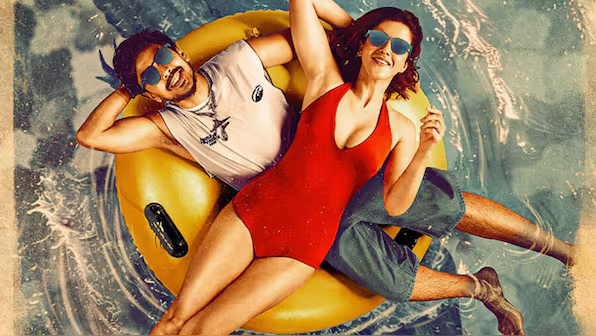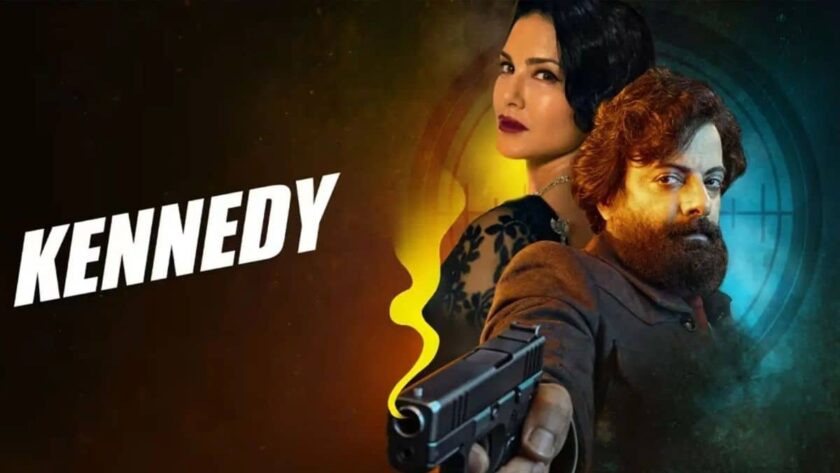Lucknow: Daily soaps over the years has seen rapid transformation, however history is testimony that Indian television had its own revolutionary phase—one that shaped pop culture and societal discourse in equal measure. At the heart of that movement was Zee TV’s breakout hit ‘Tara’, and among its memorable characters stood Popo—charming, spirited, and played to perfection by actor Imran Khan. While the industry remembers him as a filmstar-turned-TV actor, Imran’s journey mirrors the evolution of Indian television itself: bold, experimental, and ahead of its time.
Imran Khan is a veteran actor in the Indian entertainment industry, known especially for his memorable performance as Popo in the iconic 1990s TV drama Tara. Hailing from Mumbai and a graduate in commerce from Mithibai College, Khan has built a diverse career spanning over two decades in both film and television.
He began his acting journey with the 1991 film Inteha Pyar Ki and went on to feature in several mainstream Bollywood productions, including Khiladiyon Ka Khiladi (1996), Sooryavansham (1999), Big Brother (2007), and Heroine (2012). However, it was his role in Tara, a pathbreaking show that aired from 1993 to 1997, that truly established his presence in the television space. The series, notable for its progressive themes centered on urban women, made history by running successfully for nearly five years.
Following Tara, Khan continued to take on varied roles in popular television shows such as Naagin, Astitva, Beintehaa, and Kumkum Bhagya. His creative pursuits extended behind the scenes as well, with his own banner—Imran Khan Productions—through which he produced TV films and serials, including Haya (aired on ARY Digital) and Nakhuda (for Zee TV).
In a candid 2021 conversation with a media house, Khan opened up about returning to television during the pandemic era. Initially hesitant due to industry uncertainties, he eventually embraced the comeback, describing it as a comforting return to familiar faces and spaces. His continued relevance in the ever-evolving entertainment world is a testament to his versatility and dedication to the craft.
In a candid conversation with The Lucknow Tribune, Imran Khan revisits the role that turned his fortunes around, reflects on the early days of satellite television, and explains why ‘Tara’ remains etched in Indian viewers’ memories even after three decades.
Q: Your portrayal of Popo in Tara earned you a lot of praise. What was it about the character that resonated with you, sir?
Imran Khan:
You know, Tara came to me at a very crucial time. I had just started my film career and honestly, it wasn’t going anywhere. The films didn’t work. My career didn’t take off the way I had hoped. Then came this offer — Tara — the first serial on Zee TV, which was also the country’s first satellite channel. So in many ways, Tara was history in the making. And for me, it became that turning point.
A lot of us — Shekhar Suman, Naveen Nischol, and others — we were all film actors who pivoted to television when things didn’t pan out on the big screen. TV was a new medium, unexplored and full of promise. And once I stepped in, I never looked back.
Q: How did you prepare for the role of Popo, and what challenges did you face in bringing this complex character to life?
Imran Khan:
Honestly? Popo wasn’t difficult at all. He was a happy-go-lucky guy, romantic, positive, a traveler — basically who I was at that point in life. The connection was almost natural.
I still remember, my very first shoot was in Kashmir. Can you imagine? Starting my TV career in the breathtaking valleys of Kashmir. The director, Raman Kumar, and Vinta Nanda, who wrote and created the show, were simply brilliant. When you have a great team that believes in their story, it’s easy for the actor to fall in love with the character.
Q: Tara tackled several social issues, especially women’s empowerment. What do you think was the most impactful message from the show?
Imran Khan:
Oh, absolutely. The most striking part about Tara was how modern it was for its time. The story centered around four strong, independent women who were best friends from Chandigarh University and had each chosen different life paths. They were fearless in their choices — gutsy, driven, revolutionary even.
That’s why the show resonated. It gave women a voice. And honestly, television back then had so much substance. Shows like Swabhimaan, Saya, Dastaan, Ashirwad… they were all layered and progressive. Unlike today, where most TV content has sadly turned regressive.
Q: Your on-screen chemistry with Namneet Nisar, who played Tara, was widely appreciated. What was it like working with her?

Imran Khan:
Namneet was phenomenal. A gifted actor from NSD, she embodied the spirit of Tara beautifully. We had mutual respect, and yes, we’re still friends to this day. It always helps when co-actors are invested in their roles. We had proper readings, rehearsals — everything was so structured.
She also did films like Raja Hindustani with Aamir Khan, so she came with that fire and finesse. Working with her was a delight.
Q: The show explored themes like love, sacrifice, and redemption. Which of these do you think the audience connected with the most?
Imran Khan:
All of them. Because love, sacrifice, redemption — they are intertwined, aren’t they? You only sacrifice for someone you love. And sometimes, that sacrifice leads to redemption. That’s life. That’s what people saw in Tara. The serial ran for five years — that doesn’t happen unless the audience is truly invested.
And let me tell you something interesting — Tara was the first bi-weekly show on Indian television. Back then, everything was weekly. But Tara aired twice a week — that’s how popular it was.
Q: How do you choose your projects today? What drew you to Tara back then?
Imran Khan:
Back then, it was the conviction of director Raman Kumar. He told me, “Television is going to go a long way, and you’ll be proud you took this step.” And he was right.
Today, apart from script and director, I also look at practical things — like where the shoot is happening. In Mumbai, many shoots happen in the outskirts now. If it’s two hours away, I politely decline. (laughs)
Q: Your character in Tara goes through significant transformation. What was the most memorable moment for you during the show?
Imran Khan:
Kashmir. No doubt. It was 1994, and the situation in the Valley was tense. But it had always fascinated me. When I was told our shoot would be in Kashmir, that sealed the deal. It felt surreal. Amidst all the chaos, we were there telling a story about love, friendship, and strength. That contrast was powerful.
Q: Do you think Tara typecast you as Popo for a long time?
Imran Khan:
Definitely. That’s the flip side of doing something iconic. When a character becomes that popular, people start seeing you only as that. But I don’t regret it one bit. Popo was a part of me. And Tara gave me a place in the hearts of millions.
The Final Wrap
From the silver screen’s disappointments to television’s triumphs, Imran Khan’s journey is a classic tale of reinvention. With Tara, he not only found a character that resonated with him, but also helped redefine Indian television. Popo wasn’t just a role — it was a mirror, a memory, and a movement. And perhaps that’s what great performances are made of — a bit of art, a bit of life, and a whole lot of heart.









